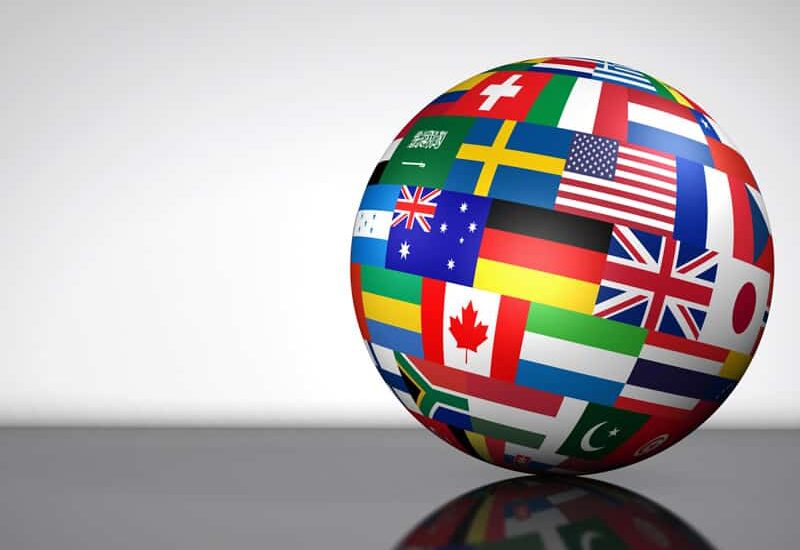
The ninth package of EU-Russia sanctions
- 22. December 2022
- Posted by: Marie-Theres Waldleben
- Categories: Commercial and Business Law, International Trade Law, Shipping and Transport Law

The European Council has adopted a new package of sanctions against Russia, now the ninth, in response to the war between Russia and Ukraine and the annexation of the Ukrainian regions of Donetsk, Luhansk, Zaporizhzhya and Kherson in violation of international law. It came into force on 17 December 2022. It aims to further restrict Russia’s import and export capacities; individual sanctions are extended in particular to those persons who are connected to the military operation or administratively for the increasing attacks on the Ukrainian civilian population and essential parts of the country’s infrastructure.
Essential rules, especially for the oil industry
As we already pointed out in our last Jusletter on the eighth package, in the case of oil shipments, which are now possible at all in connection with oil from Russia, care must be taken to ensure that the price agreements between the parties are also comprehensively known to transporters. This requirement is linked to the oil price cap agreed among the G7 states, the European Union and Australia.
It cannot be emphasised enough how sensitive such transports are, especially against the background that actors in the oil supply industry are used to trading contracts concerning oil deliveries with high frequency, in particular to profit from price developments on the world markets. The legal situation that now exists regarding oil from Russia is a novelty and restricts traditional trading mechanisms and customs. It can also be assumed that Russian players will try to circumvent the oil price cap. In this context, however, the question arises with which business partners this will be attempted. The risks that potential participants would have to take if the oil price ceiling were breached are immense in view of the sanctions regulations that are punishable by law. Oil-importing states, which have expressed less condemnation of Russia’s war of aggression than other states, benefit from lower oil prices. This branch of Russian foreign exchange earnings will therefore now see a noticeable reduction in volume. The deadline for discharging ships carrying crude oil from Russia which is not yet subject to the new regulations and was bought before 5 December 2022 is 19 January 2023.
The regulations provide that the price cap mechanism will be subject to regular review to ensure its effectiveness. The targeted frequency is two months.
The EU is aware that it is creating competitive disadvantages for the shipping industry with the measures aimed at trade and shipping and has therefore set itself the target of further developing instruments to strengthen the competitiveness of EU shipping by 05 February 2023.
The ninth package of EU-Russia sanctions, in addition to restricting Russia’s economic power in the energy sector, also includes measures to cut off the flow of funds into the extraction of a variety of raw materials through mining.
Additional EU export bans and expanded service bans
The already comprehensive export bans have been supplemented once again, with new export restrictions on sensitive dual-use goods and technological goods potentially useful for warfare.
In this context, it is also worth mentioning that the list of listed Russian organisations closely linked to Russia’s military-industrial complex has been significantly expanded by 168 more organisations, bringing the total number of organisations on the list to 410.
Extensive areas of various services are covered by bans, for example the media and advertising industry. The scope for Russian propaganda has been further restricted with the inclusion of four more channels (NTV/NTV Mir, Rossiya 1, REN TV and Pervyi Kanal) in the scope of the sanctions.
Further transaction bans for Russian banks
Three more Russian banks are covered by the sanctions regulations, a complete transaction ban exists for the Russian Regional Development Bank, Credit Bank of Moscow and Dalnevostochniy Bank are also listed.
Restrictions concerning access to drone technology
A special feature of the sanctions regulations can be seen in the extension to trade with third countries. This was triggered by the discovery of Iranian-made drones that had been used by Russia in the war against Ukraine and the Ukrainian population.
Impact of sanctions on the world food situation
With regard to its responsibility not to jeopardise the world food supply, the EU stresses that its sanctions have no impact on energy, agricultural and food exports from Russia to third countries.
Do you have further questions on these or other topics? Our experts will be happy to support you with solutions tailored to your individual needs.


